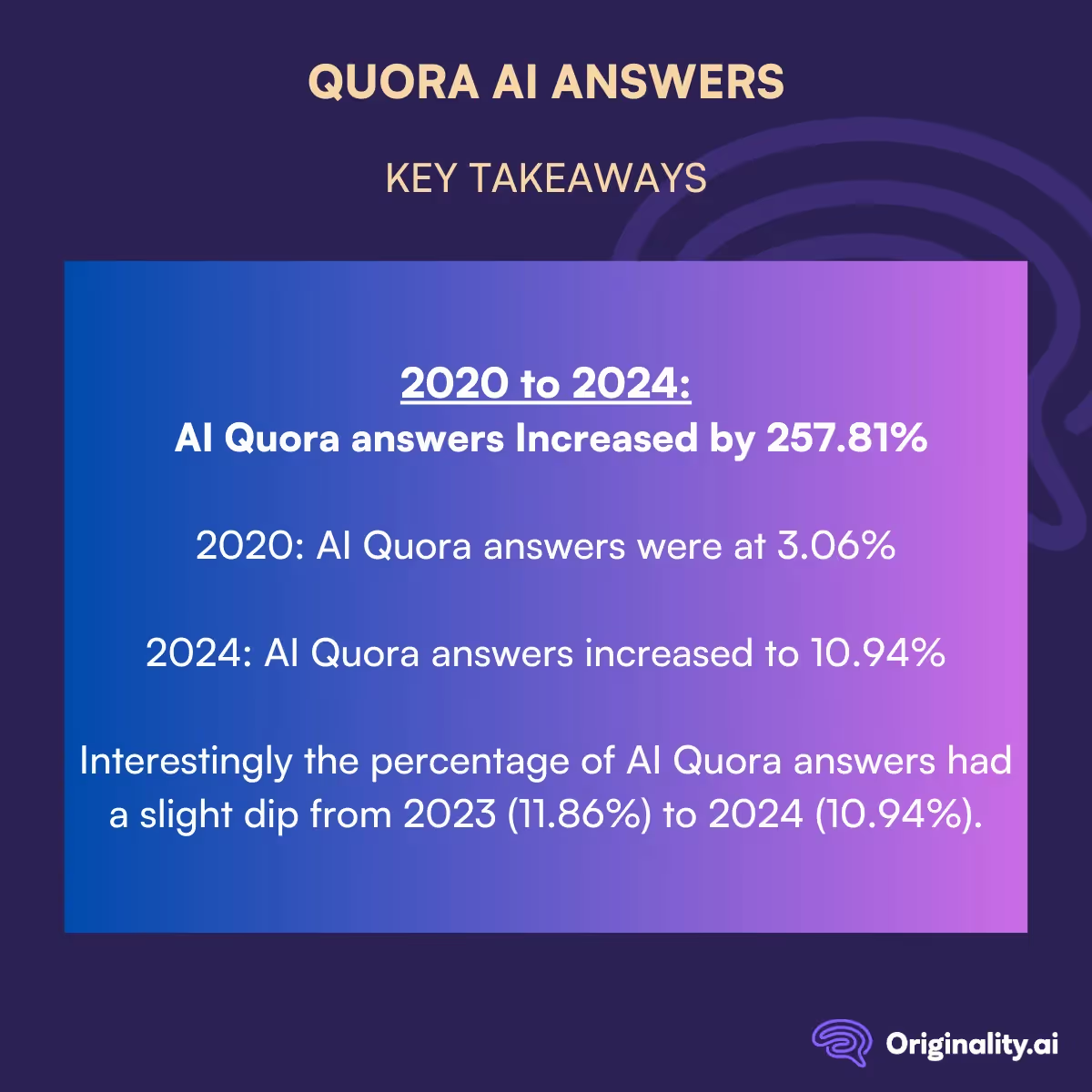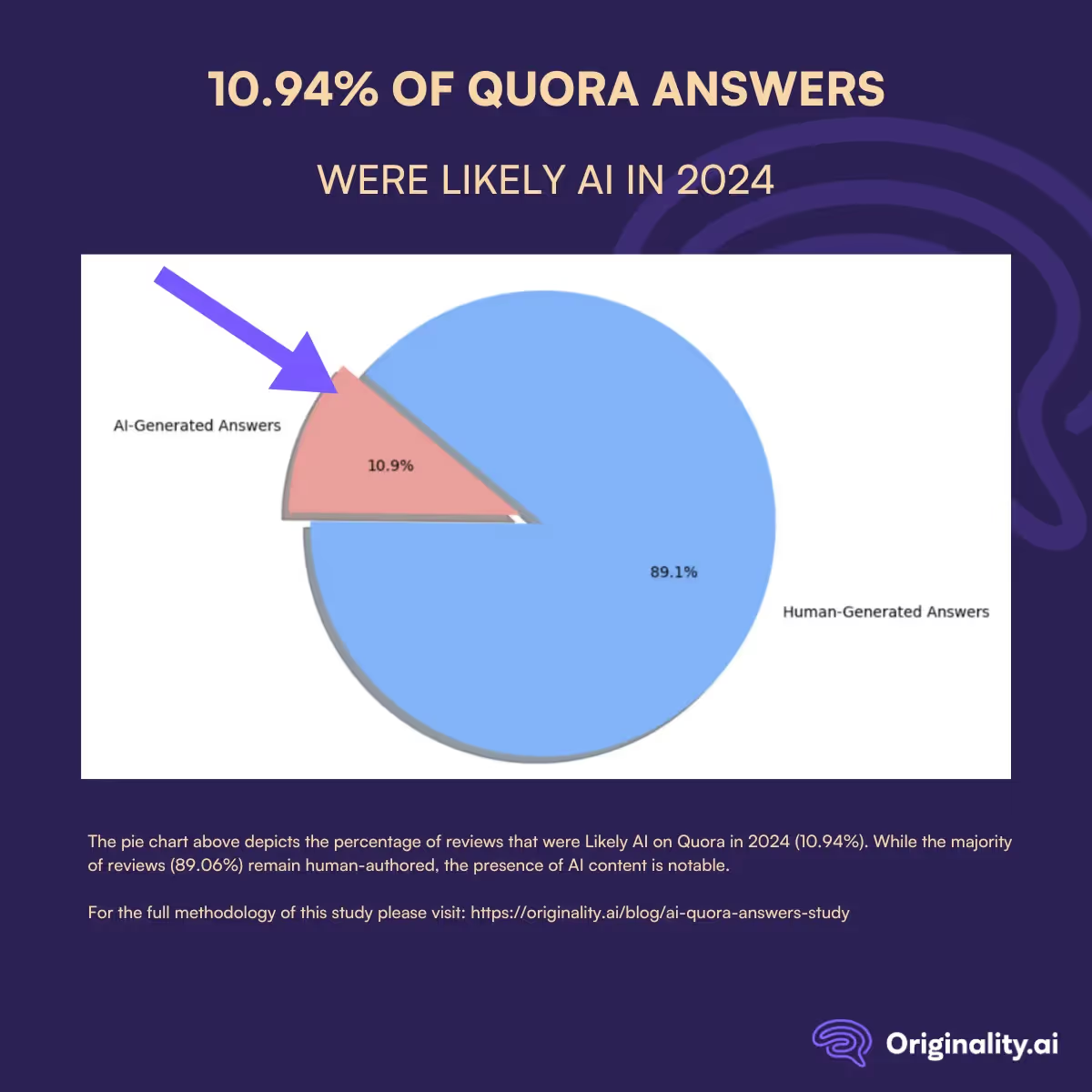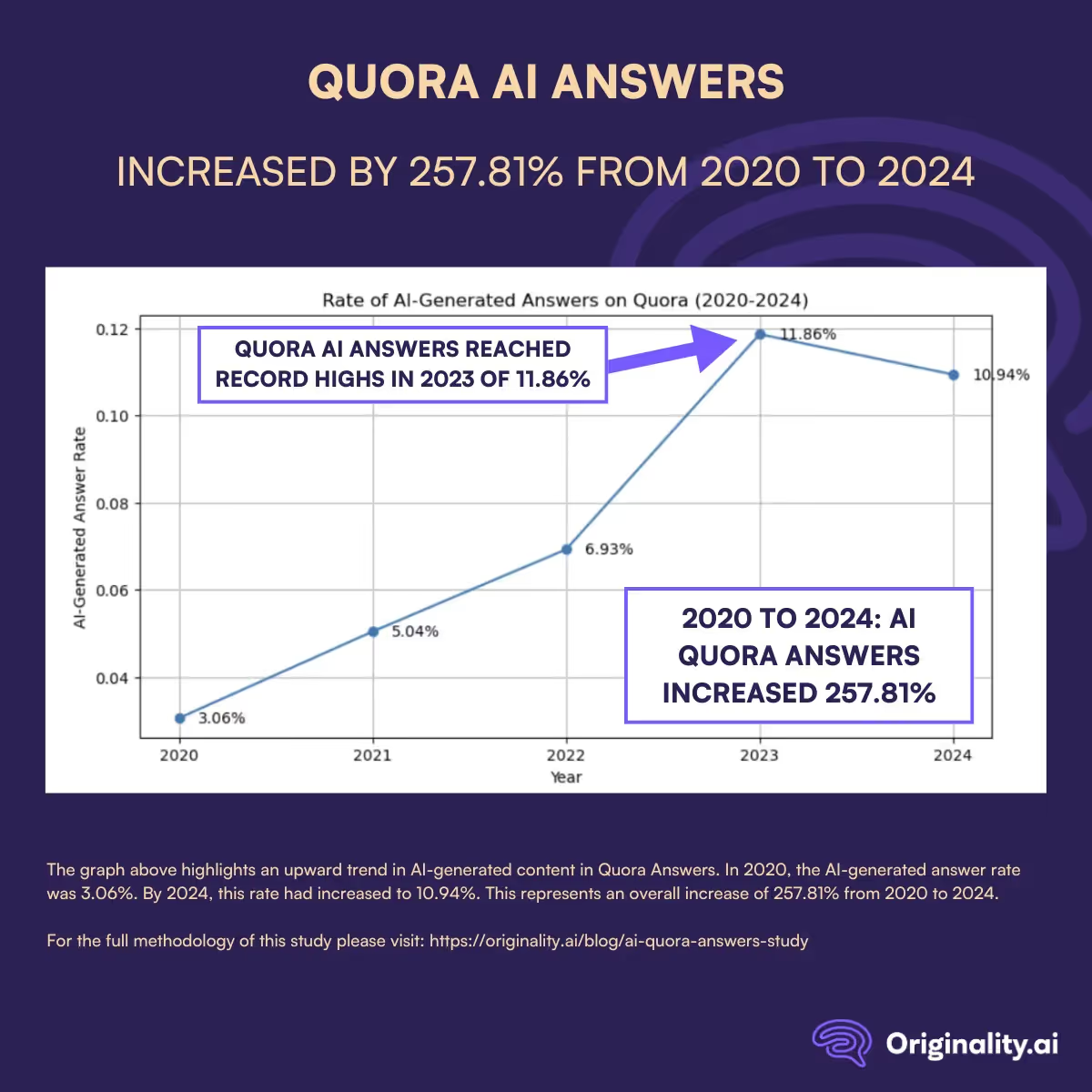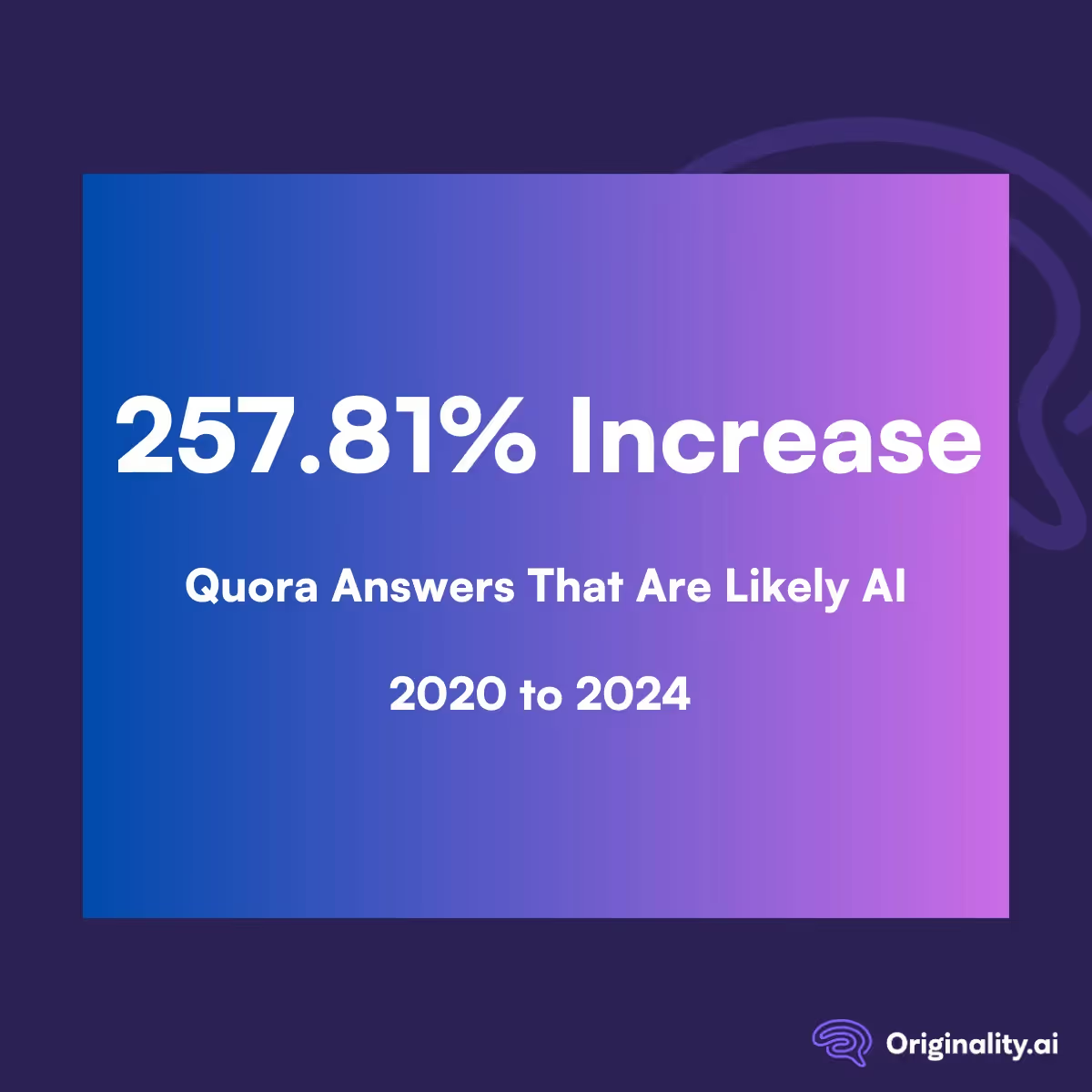When someone wants to get insights and thoughts from fellow internet users, Quora is likely one of the first places to check.
But what if that human interaction went away? Instead what if it was replaced with AI-generated questions and AI-generated answers?
In our recent study, we look deeper into AI Quora answers, highlighting how many posts are human-written and how many have been AI-generated.


From our analysis, we found that for 2024, 10.94% of the Quora Answers studied were likely AI-generated.
On the flip side, this does mean the majority of answers remain human-written, yet the rise of AI-generated answers is a concern for users who go to the platform to gather human feedback and insights.
The increase from 3.06% in 2020 to 10.94% in 2024 is likely due to the rising awareness of generative AI capabilities.
If the percentage of Quora answers that are likely AI continues to increase, users may become less trusting of the information they receive on the platform. This could, in turn, have notable impacts on consumer perception of Quora’s reliability.

When reviewing the data on a year-by-year basis, there’s a clear and steady increase of AI-generated answers on Quora up to 2023. In 2024, the rate drops slightly.
The data highlights that overall, that the percentage of Quora contributors using AI to submit content is increasing.
At the same time, it may also reflect that Quora is either trying to take steps to mitigate its impact or that user reliance on AI content (on Quora) has plateaued — as indicated by the slight dip in AI content percentages between 2023 and 2024.

The impact of a rise in AI answers could have notable implications for the consumers of Quora and the website itself.
Many consumers turn to Quora to receive real, authentic human answers to questions and to get involved in discussions with others. So, if the website became flooded with AI-generated content, these users could potentially decide to use another discussion forum.
Additionally, Google can penalize sites that publish AI content that doesn’t comply with spam policies, which could result in a traffic decrease (Read more in our study on Google AI Content Penalties).
The rise in AI-generated answers on Quora poses challenges for online discussion forums and platforms.
Sites like Quora are built on human content and human interactions. So continuing to monitor the rise in AI-generated answers and posts is imperative.
Further, consumer trust and integrity are vital components for brands like Quora. As AI-generated responses become more prevalent, it will be critical for both platform moderators and users to evaluate content quality and ensure transparency in AI-assisted responses.
Additionally, these findings suggest that AI’s role in online knowledge-sharing is becoming increasingly prominent and that further investigation into how AI-generated content impacts user engagement and trust is key.
Are you unsure if a review or post you’re reading is human-written or AI-generated? Use the Originality.ai AI detector to find out.
Read more about the impact of AI on online platforms:
Then, learn about Quora’s AI Chatbot:
We used an unofficial Quora Scraper API from RapidAPI to collect publicly available content, including questions, answers, and author profiles. By defining thematic search terms (e.g., “cars” and “technology”), we retrieved English-language answers over multiple timeframes. We paginated through results to gather a diverse dataset of thousands of answers, ensuring compliance with rate-limiting rules. Each response provided details like author name, content, and engagement metrics, which were then structured into CSV files for further analysis.
We applied AI-content detection using Originality.ai. A script submitted answers (with a minimum length of 50 words) to the API, which returned an “AI likelihood score” and a classification (AI or human). The script included retry logic and saved intermediate results to prevent data loss. The final dataset, combining Quora data with AI-detection values, allowed analysis of AI-generated answers and patterns across topics and timeframes.

MoltBook may be making waves in the media… but these viral agent posts are highly concerning. Originality.ai’s study with our proprietary fact-checking software found that Moltbook produces 3 X more harmful factual errors than Reddit.